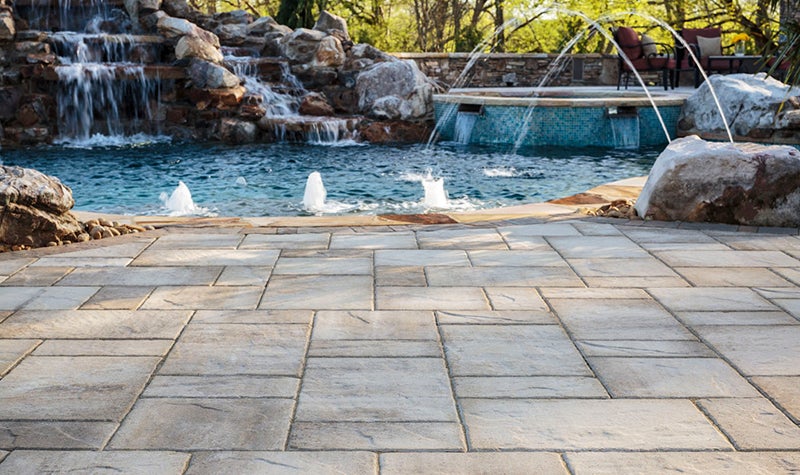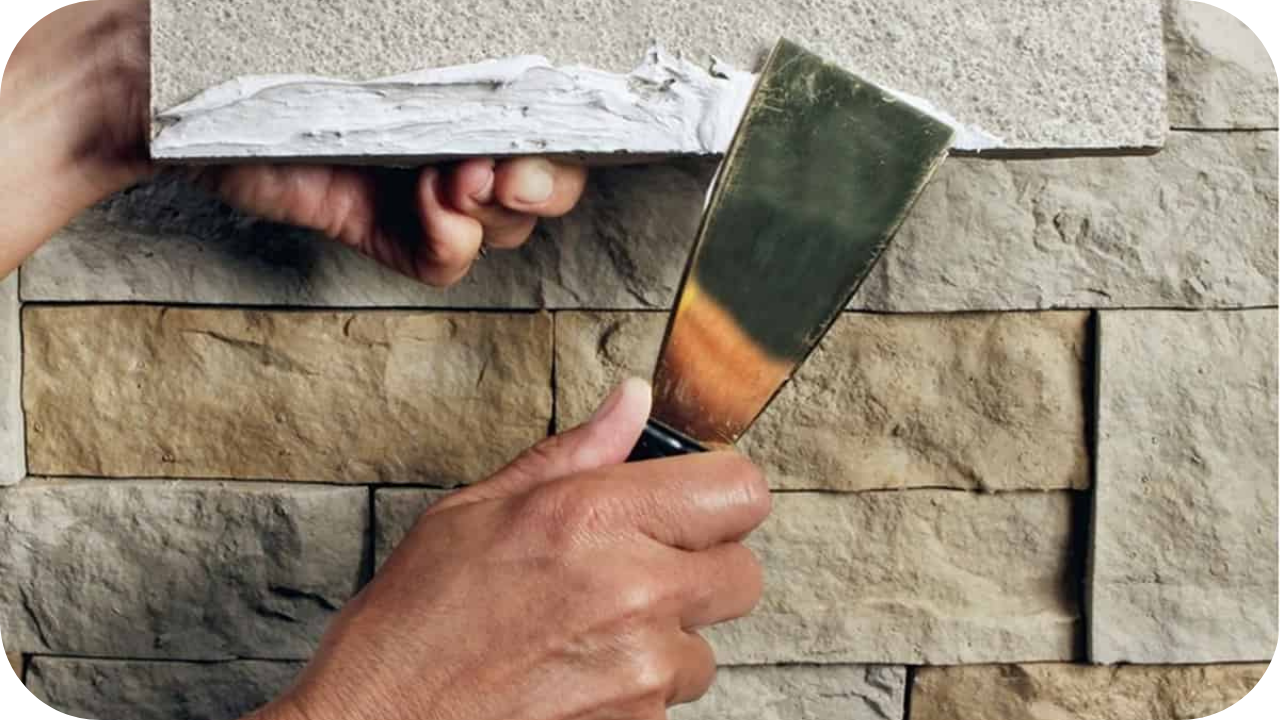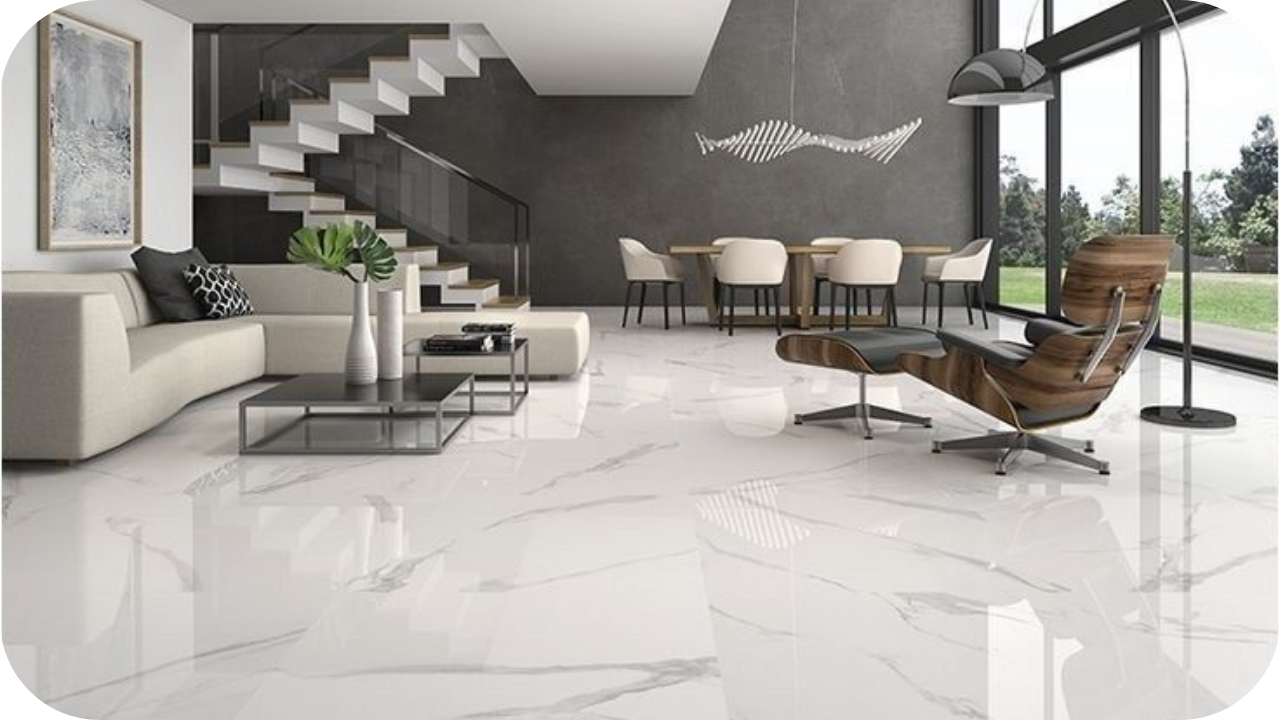
Choosing the right paving material for your outdoor space can be overwhelming, with many options.
Making the wrong choice could result in costly maintenance, frequent repairs, or a less attractive finish, which can cause frustration and disappointment.
Porcelain pavers offer a durable, low-maintenance, and aesthetically pleasing solution. In this article, we explore seven crucial factors to consider when selecting porcelain pavers to ensure you make the best decision for your project.
1. Durability and Strength
Durability and strength are paramount when selecting paving materials. Porcelain pavers excel in these areas, offering a robust solution for residential and commercial projects.
Manufactured under extreme pressure and high temperatures, porcelain pavers are incredibly dense and compact. This process results in a material that can withstand heavy loads without cracking or chipping, making it ideal for driveways, walkways, and high-traffic areas.
Their high density also contributes to their resistance to wear and tear, ensuring a long lifespan even in challenging conditions.
Porcelain pavers are also non-porous, which means they do not absorb water. This characteristic prevents issues like freeze-thaw damage, which is common in more porous materials.
Their resistance to moisture and staining makes them an excellent choice for areas exposed to the elements, such as patios and pool surrounds.
Furthermore, porcelain pavers are scratch-resistant, maintaining their appearance despite frequent use and exposure to harsh weather. This scratch resistance ensures they retain aesthetic appeal over time without extensive maintenance.
2. Aesthetic Appeal
One of the standout features of porcelain pavers is their aesthetic appeal, making them a popular choice for enhancing the beauty of outdoor spaces.
Porcelain pavers offer an extensive range of designs, colours, and finishes, allowing you to achieve virtually any desired look.
Whether you prefer the classic elegance of natural stone, the rustic charm of wood, or the sleek modernity of concrete, porcelain pavers can mimic these materials with remarkable accuracy.
This versatility ensures you find the perfect style to complement your home’s architecture and landscape design.
The advanced manufacturing techniques in producing porcelain pavers also produce a uniform appearance with consistent colouration and texture.
This consistency enhances their visual appeal and makes them easier to plan and install, ensuring a seamless look.
Porcelain pavers resist fading, even when exposed to direct sunlight over extended periods. This ensures that the vibrant colours and intricate designs remain intact, maintaining the aesthetic integrity of your outdoor space.
3. Slip Resistance
Slip resistance is crucial when choosing paving materials, and porcelain pavers provide a safe surface for various applications. Designed with textured finishes, porcelain pavers offer excellent grip, reducing the risk of slips and falls, even in wet conditions.
The manufacturing process of porcelain pavers incorporates surface treatments that enhance their slip-resistant properties.
These treatments create a rougher surface texture, which improves traction and makes them suitable for areas prone to moisture, such as pool surrounds, patios, and pathways.
Another advantage of porcelain pavers is their ability to maintain slip resistance over time. Unlike some materials that may wear down and become slippery, porcelain retains its textured surface, ensuring long-lasting safety.
This makes them a reliable choice for residential and commercial projects where safety is a priority.
In addition to their functional benefits, porcelain pavers’ slip-resistant finishes do not compromise on aesthetic appeal. You can choose from various designs and colours while ensuring a secure surface.
4. Maintenance Requirements
Porcelain pavers are renowned for their durability and low maintenance, but regular upkeep is essential to ensure their longevity and pristine appearance.
Unlike natural stone, porcelain pavers are non-porous, making them resistant to stains, mould, and moss. This quality significantly reduces the need for intensive cleaning, but routine maintenance is still necessary.
Start by regularly sweeping the surface to remove dirt and debris. This simple step prevents particles from accumulating and potentially causing scratches. For deeper cleaning, use a mild detergent mixed with water.
Avoid harsh chemicals, which can damage the paver’s surface and reduce lifespan. Pressure washing can be employed for more stubborn grime, but it should be done cautiously to avoid dislodging the pavers or damaging the joints.
Inspect the joints periodically and refill them with jointing sand if needed. This helps to maintain the structural integrity and appearance of your paver installation. In case of accidental spills, immediate cleaning is advised to prevent any potential staining.
5. Weather Resistance
Weather resistance is critical when choosing paving materials, and porcelain pavers excel. Their ability to withstand various weather conditions ensures they remain durable and visually appealing year-round. Here are the key aspects to consider:
- Frost Resistance: Porcelain pavers are non-porous, which means they do not absorb water. This characteristic prevents freeze-thaw damage, a common issue with more porous materials. Porcelain pavers maintain their integrity even in cold climates without cracking or splitting.
- Heat Resistance: In hot climates, porcelain pavers remain cool underfoot, unlike materials that can become uncomfortably hot. Their ability to resist high temperatures without warping or discolouring makes them ideal for outdoor spaces exposed to direct sunlight.
- UV Stability: Prolonged exposure to UV rays can cause some paving materials to fade or deteriorate. Porcelain pavers are UV stable, ensuring their colours and finishes remain vibrant and intact over time, even in sunny environments.
- Moisture Resistance: The non-porous nature of porcelain also means it resists moisture penetration, preventing issues like mould, mildew, and staining. This makes porcelain pavers suitable for areas with high humidity or frequent rainfall.
- Wind and Debris Resistance: Porcelain pavers are heavy and securely installed, making them resistant to strong winds or heavy debris displacement. This ensures they stay in place and maintain their appearance even during severe weather events.
6. Installation Process
The installation process of porcelain pavers is crucial to ensuring their durability and performance. Proper installation not only enhances their longevity but also maintains their aesthetic appeal. Here’s a detailed look at the essential steps involved:
- Substrate Preparation: Begin by preparing the ground. This involves removing any existing materials and ensuring the area is level. Proper levelling and compacting of the soil are essential to prevent shifting and settling of the pavers over time.
- Base Layer: Lay a high-quality base layer, typically gravel or crushed stone. This base provides stability and aids drainage, preventing water accumulation that could damage the pavers.
- Bedding Layer: Add a bedding layer of sand on the base. This layer allows for minor height adjustments and helps to create a uniform surface for the pavers.
- Laying the Pavers: Carefully place the porcelain pavers on the prepared bedding layer. Ensure consistent spacing between each paver to accommodate jointing material and allow for thermal expansion.
- Edge Restraints: Install edge restraints around the perimeter to keep the pavers securely in place. This prevents them from spreading or shifting over time.
- Jointing: Fill the joints between the pavers with a suitable jointing material, such as sand or polymeric sand. This step enhances stability and prevents weed growth.
- Compaction and Finishing: Compact the pavers using a plate compactor to ensure they are firmly set. Sweep the surface to remove any excess jointing material.
7. Cost and Value
Understanding the cost and value of porcelain pavers is essential when choosing paving materials. While the initial investment may be higher than other materials, the long-term benefits and overall value make them cost-effective.
- Initial Cost: Porcelain pavers typically cost more upfront than concrete or standard brick materials. This cost reflects the advanced manufacturing process and the superior quality of the product.
- Longevity: One key factor contributing to the value of porcelain pavers is their durability. They resist cracking, fading, and staining, ensuring they maintain their appearance and functionality for many years. This longevity reduces the need for frequent replacements or repairs, resulting in long-term savings.
- Maintenance: Porcelain pavers require minimal maintenance. Their non-porous surface resists moisture and staining, eliminating the need for regular sealing and extensive cleaning. This ease of maintenance translates to lower ongoing costs.
- Aesthetic Value: The wide variety of designs, colours, and finishes available with porcelain pavers enhances the aesthetic appeal of any space. This visual enhancement can increase the property’s overall value, making it a worthwhile investment.
- Resale Value: High-quality, well-maintained porcelain pavers can boost a property’s resale value. Prospective buyers often appreciate porcelain’s durability, low maintenance, and aesthetic appeal, making it an attractive feature.
Conclusion
Choosing porcelain pavers involves considering durability, aesthetic appeal, slip resistance, weather resistance, installation process, and cost. These factors ensure a high-quality, long-lasting paving solution.
Ready to enhance your outdoor space with porcelain pavers? Contact Splendour In Stone Melbourne today for expert advice and a stunning range of options.
More To Explore

How to Choose the Right Adhesive for Installing Stone Cladding
Choosing the wrong adhesive for stone cladding can lead to cracking, detachment, or even structural failure. All that hard work could fall apart in months

Stone Options for Modern Home Designs
Modern homes demand high-quality materials that combine style with strength. But with so many options available, choosing the right stone can feel overwhelming. Many people


